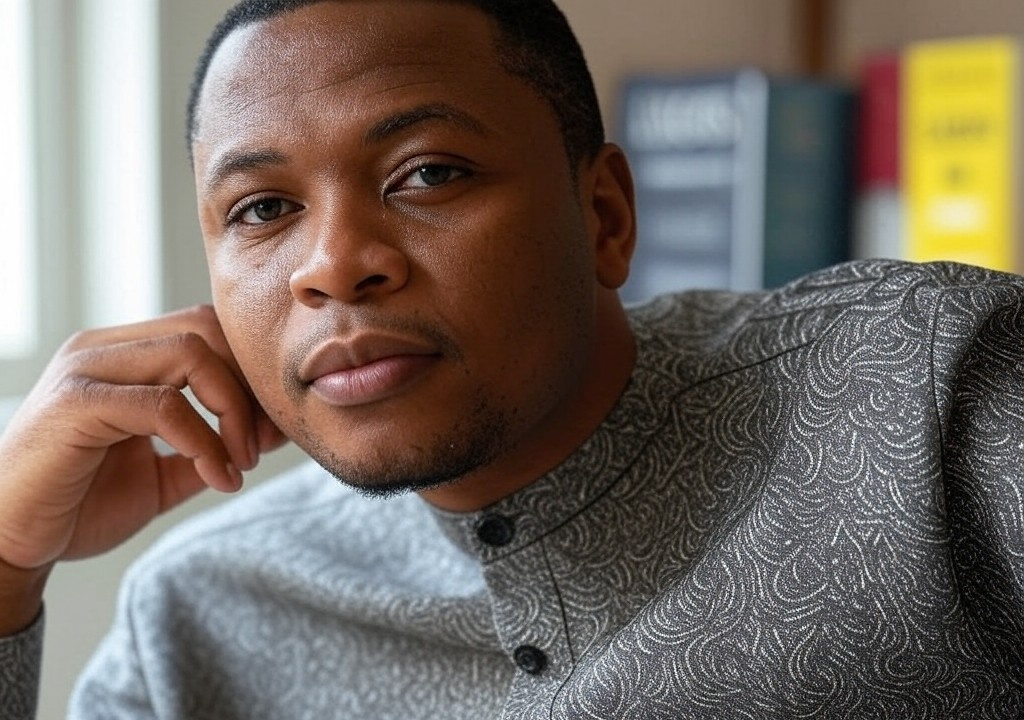I still remember the first story I ever wrote. I was six years old, sitting cross-legged on my grandmother’s porch in Lagos, armed with a scrappy blue notebook and a pencil that was in desperate need of a sharpener. It was about a mischievous goat that broke into a market and caused total chaos. By the third page, I had worked myself into a fit of laughter so uncontrollable that my cousins abandoned their game of soccer to see what kind of ridiculousness had me in stitches. That was the moment I discovered the magic of storytelling—it was a vehicle for joy, connection, and chaos all wrapped in one. And, like the goat in my story, I’ve been causing chaos with words ever since.
Writing is how I make sense of my world. It’s how I connect the dots between who I was, who I am, and who I hope to become. Somewhere along the way, it also became my lifeline to understanding other people—and that’s where the real adventure begins. So, why do I write and keep writing? Let me break it down.
Because Words Are Bridges
Growing up as the kid with the “funny accent” in a Brooklyn classroom made me hyper-aware of language. During my first year in the U.S., I clung to the dinner-table expertise of my siblings to decode phrases like “what’s good?” (spoiler: it doesn’t always mean actual food). Language was my way through and my way in—a means of building a bridge, though sometimes wobbly, to understanding people and being understood.
It’s no surprise that writing became my obsession. When I write, I get to build those bridges on my own terms. I can take the cultural cadence of Lagos markets—full of bartering, humor, and a little sass—and weave it into an interaction taking place in a Brooklyn coffee shop. I can create a dialogue that doesn’t just explore words but the worlds in which those words were born. Writing, for me, is the ultimate passport, helping me navigate cultures, relationships, and the perpetual pursuit of connection.
Because It’s Cheaper Than Therapy
Here’s the thing about writing: it asks no co-pay and doesn’t restrict you to a 50-minute window. Whenever I’ve felt swamped by heartbreak, self-doubt, or even the panic of turning 30 and still not having a 401(k) (shoutout to adulting), writing has saved me. Sitting down with a blank page lets me argue with myself, examine the emotional mess, and sometimes even laugh at it.
Most of us have been there—sitting on the bathroom floor, scrolling through old texts from someone you swore you were over, debating if a “you up?” text is worth the humiliation. Instead of texting, I write. Sometimes it’s just rambling nonsense, and other times, it transforms into a short story or poem. Either way, it gets the feelings out and leaves me lighter.
My favorite thing about writing through these moments is how often someone—usually a friend or a reader—will later tell me, “I thought I was the only one who felt that way.” That right there? That’s the comfort of storytelling. It reminds us we’re less alone in our messiness than we’d like to think.
Because Stories Are Where People Fall in Love
Here’s a little secret I learned teaching high school lit: people love stories, often more than they realize. You can see it in how a student’s eyes light up when they realize Shakespeare wasn’t just waxing poetic about balconies but was creating drama worthy of a Netflix original series. Love triangles, jealousy, bad decisions—we live for this stuff, whether in novels or real life.
As a romance writer, I like to think of stories as date-night movies for the soul. They bring us into moments that make us feel seen, heard, or even just entertained for a while. Writing romance is my way of nudging people toward the good stuff in life—the connection, the laughter, the butterflies. I explore the subtleties of a simple hand-holding scene as carefully as I’d examine whether to reply with “k” or “sounds good” in a tricky text exchange. Why? Because stories give us the freedom to explore love with no strings attached and, hopefully, see ourselves in the ways we want to be loved.
Because Inspiration Can Be Loud or Quiet, But It’s Always There
Inspiration follows no schedule. Some days it feels as loud as Fela Kuti blaring through a Lagos neighborhood, demanding my full attention. Other days it sneaks in softly, like the sound of jazz on a rainy night in Brooklyn. Regardless, I’ve learned to meet it where it’s at.
I’ve drawn story ideas from overheard snippets of conversations on the train, from the awkward silences on first dates, and even from that one time a stranger in a London pub mistook me for his college roommate. (Spoiler: I walked away with a great plot twist for a short story and a very confusing pint of ale.)
Writing also teaches you to pay attention. You start overhearing not just words but tone—the loaded pause, the breath between sentences, the way someone’s eyes dart away when they’re not telling the full truth. It's a way of being present, which, frankly, is half the battle when we’re caught in the non-stop scroll of life.
Because Writing (and Love!) Is a Work in Progress
Let me be real: writing is not always romantic. Some days, it’s a grind. It’s staring at my laptop for hours trying to find the right word to describe what the heroine is feeling—something fancier than “happy” but less melodramatic than “elated.” (Why is the English language both vast and limited at the same time?) But I keep coming back, because writing, like love, isn’t about perfection. It’s about showing up. Again. And again. And again.
That’s the thing about life, relationships, and creativity—they’re all practice, not performance. You show up for the hard days because, sometimes, the grind turns into grace. A messy draft becomes a polished piece. An awkward date becomes a love story. And every now and then, your words reach someone on the other side of the screen who thinks, “Wow, me too.”
Because Stories Outlive Everything Else
I used to think of storytelling as something fleeting, something ephemeral, like smoke. Now I understand it’s granite—solid and enduring. When we write, we’re creating something bigger than ourselves. It’s an act of marking existence, of saying, “I was here. I felt things. Let me show you.”
My favorite stories, whether Achebe’s poignant tales of identity or Zadie Smith’s richly layered characters, remind me of how wide and complicated the human experience is. They remind me we’re all trying, failing, and occasionally succeeding together. They tell us that the effort itself—the act of loving, living, and yes, even writing—is always worth it.
At the end of the day, writing is my love language. It’s how I explain myself to the world and how I meet the world halfway. It’s my way of holding on to joy, processing pain, and making sense of all that falls in between. And if one mischievous goat taught me anything, it’s that chaos has a way of bringing people together—even if it’s just on paper.
So, I write. I keep writing. And I don’t plan to stop anytime soon.




















